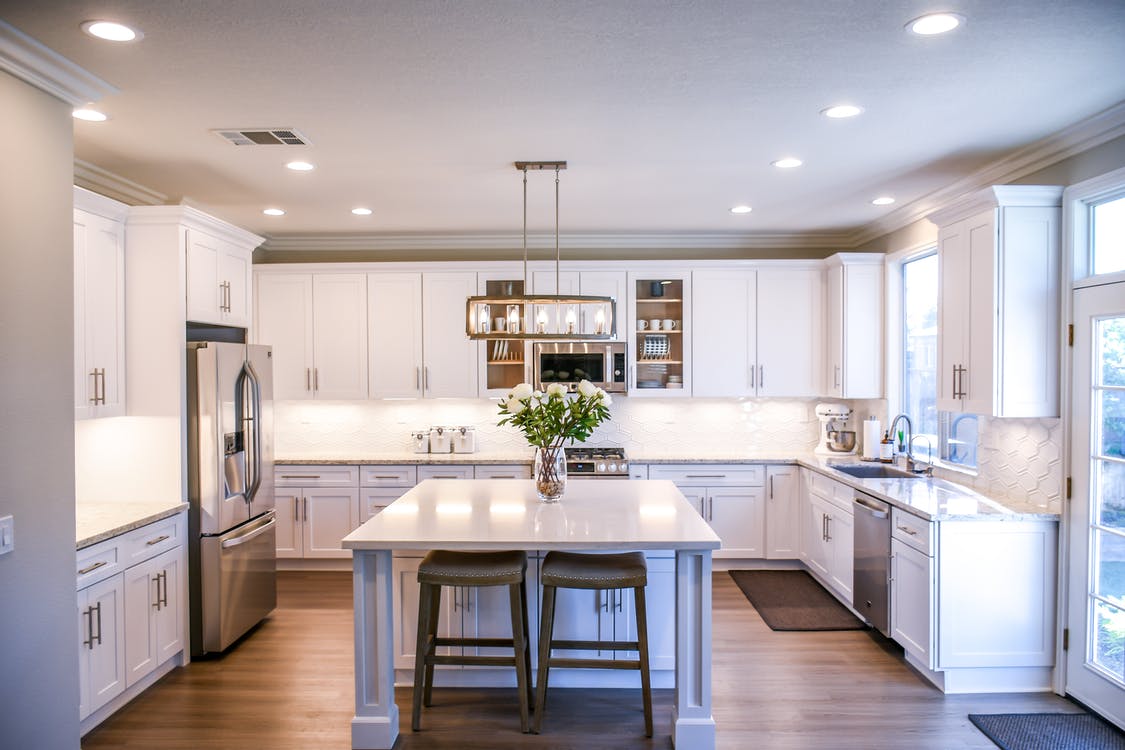Besides choosing the right material, color, and size for the cabinet, choosing the countertop is also essential. The right choice of countertop for your kitchen is one of the most crucial features in the interior decoration process. It requires sufficient knowledge of the material, quality, and price of various products.
There are several types of cabinet countertops in the market right now that may confuse you. But do not worry! This article wants to introduce you to the different kinds of cabinet countertop and their advantages and disadvantages. Join us to get detailed information about them.
Pros and Cons of Granite Countertops
When it comes to a stone countertop, the first model that comes to mind is granite, which is used in almost all old and new kitchen designs. Although granite is widely used, the beautiful designs of granite stone are by no means old and still show luxury and fashion in the kitchen. Granite is a completely natural stone that is obtained directly from stone quarries. It is then cut into thin sheets and polished. Finally, it is available to cabinet makers as a countertop. Granite completes a kitchen’s elegance, doubles its beauty, and gives a luxurious and modern atmosphere. Granite is heat resistant and durable. Its resistance to any damage is excellent, that it will not need to be repaired or replaced for a long time. Granite has about 3000 different colors and types. The disadvantage of granite is that it is an expensive material. Granite sheet, if not installed properly, may crack, and pay attention to clean it regularly.
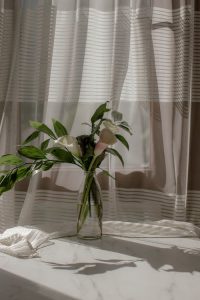
Advantages and Disadvantages of Quartz Countertops
These days, these types of countertops are much more popular. Quartz has long-term strength, and it is more durable than granite. Quartz stone contains silica or quartz, which is the most rigid material in nature after diamond. This property makes quartz sheets very resistant to all kinds of damages. The advantage of this type of stone is that it is smooth, uniform, and shiny. This anti-stain, anti-scratch, and anti-bacterial stone is easier to maintain than other artificial or natural stones. The cabinet countertop stone known as quartz is an engineered stone product containing approximately 93% of quartz particles and other minerals. This kind of countertop is more compatible than granite and marble. The color spectrum of quartz rocks is much higher than that of granite rocks. Its higher quality surface is very resistant to scratches and stains. It can be made in any size and shape. But this kind of cabinet countertop is expensive, costly, and very heavy.
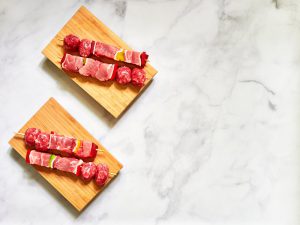
What Do You Know About Marble Countertops?
This stone is one of the most popular choices for the kitchen. This beautiful and natural stone, despite its graceful appearance, is fragile against the blows and scratches of knives and kitchen cleavers. Its white and polished surface makes the kitchen feel fresh and clean. Marbles are not highly resistant to chemicals and acids. You may have noticed that intentionally or unintentionally pouring lemon juice on the marble will blur it. Marble has a classic look that always and everywhere shows its beauty. For those who love white kitchens, marble offers a wide range of models not found in any other model. Marble is the best choice if you can take care of your countertop stone, but if you do not have the time and patience to take care of it, granite and quartz will be perfect alternatives. It is worth saying that no two sheets of marble are exactly alike. Therefore, any cabinet countertop decorated with marble will undoubtedly be unique.
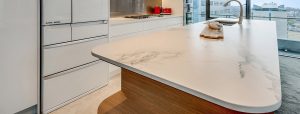
Dekton Kitchen Countertops
Dekton stone consists of quartz crystal, porcelain, and glass. Dekton is an accelerated version of the transformation of natural rocks. This evolution represents a technological and industrial leap capable of producing a new process, a revolutionary substance, and a leading product called Dekton. Dekton has several properties that make it unique to indoor applications; also, thanks to its resistance to sunlight, it is suitable for outdoor surfaces. The large dimensions of the Dekton stone increase the range of its applications in the kitchen, bathroom, floor, wall tiling, and facades. Dekton has a very high resistance against scratching and pressure, so it is suitable for high-traffic environments. Dekton is antibacterial and eliminates the possibility of bacteria and germs growing on it. Dekton stone is resistant to acids, heat, and fire. We can use a wide variety of colors of Dekton stone in the kitchen, floor, wall, fireplace, and bathroom.
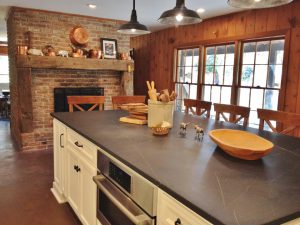
Soapstone Countertops
Soapstone is another natural stone that is usually made in gray. Soapstone is often suitable for classic style kitchen designs, but it has been seen in some modern kitchen styles too. This stone gives an extraordinary and attractive style to the kitchen. Soapstone is hard and stain-resistant. However, it gets scratched and suffers physical damages. It is heat resistant and has a special and unique color. Soapstone countertop gives a historical and royal look to the kitchen, but as mentioned previously, it becomes duller and darker over time. However, this can be an advantage because it gives it an older and antique look.
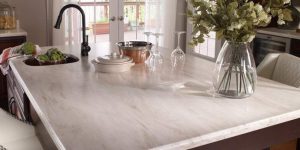
How about Corian Stone Kitchen Countertops?
It’s a long time since integrated panels known as Corian stones are primary materials for cabinet countertops. Formability and integration are among Corian stones’ prominent features and indicators. Corian integrated surfaces are acrylic coatings and have an extensive range of colors in the market. They are waterproof and repairable. This kind of stone is antibacterial. Countertops made of Corian are very resistant to water penetration; they are stain-resistant, and you can clean them easily with a damp cloth.
Contrary to the advantages mentioned above, Corian countertops are vulnerable to scratches. These countertops do not have high resistance to high heat and pressure.
Contact us for more information and free consultation!

